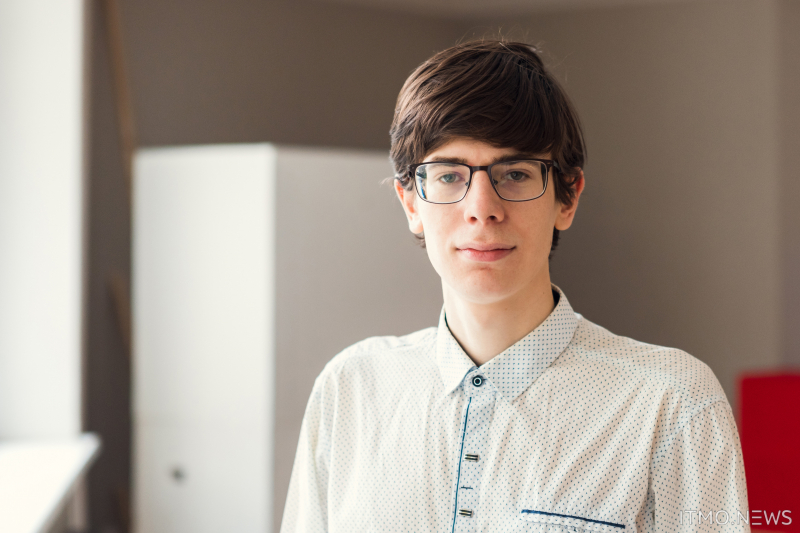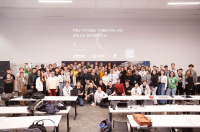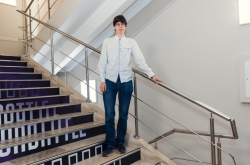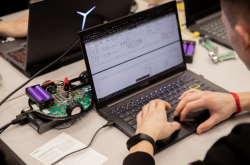Zakhar, how did you get into academic competitions?
Although I had my first contests when I was still in school, it wasn’t as serious until fifth grade when I, at that moment a student of a public school with a focus on English, joined a math club at the Lyceum “Physico-Technical School.” A year later, I started to study physics and computer science, as well, and began to apply my knowledge at physics competitions for school students.
In the seventh grade, my contest results made it possible for me to advance to the next round of the national competition. I was offered a chance to compete with high schoolers at the regional round and then, as I performed pretty well, I got into the finals. Since then, I’d been competing with high schoolers mostly.
When I was in the eighth grade, I enrolled into a physics and technology school and was part of as many competitions as I could only sign up for – mostly local contests. And since I started studying physics in the sixth grade and not the seventh grade like my classmates, I was doing well and even won prizes.
In the ninth grade, I also acquired an interest in computer science. Though I had never won a prize in this field, I carried on. As a result, I became a winner of the national competition for school students in a year. However, despite my interest in computer science, physics still remained my top priority. I loved it more and had better results in it.
You’ve also participated in international events, right?
Over my school years, I received one national medal in computer science and four in physics. Yet the crème de la crème of my experience back then was the International Physics Olympiad. I won the competition, finishing eighth, when I was in the 11th grade. Other than that, I earned gold at the Asian Physics Olympiad and the Singapore International Mathematics Challenge.
Although not everyone will agree with me, I believe that the most difficult thing is to pass a national selection and get into a team that will represent the country in a competition. The reason is, teams can have no more than five participants, and it’s quite hard to make it to the top 5 in the whole country.
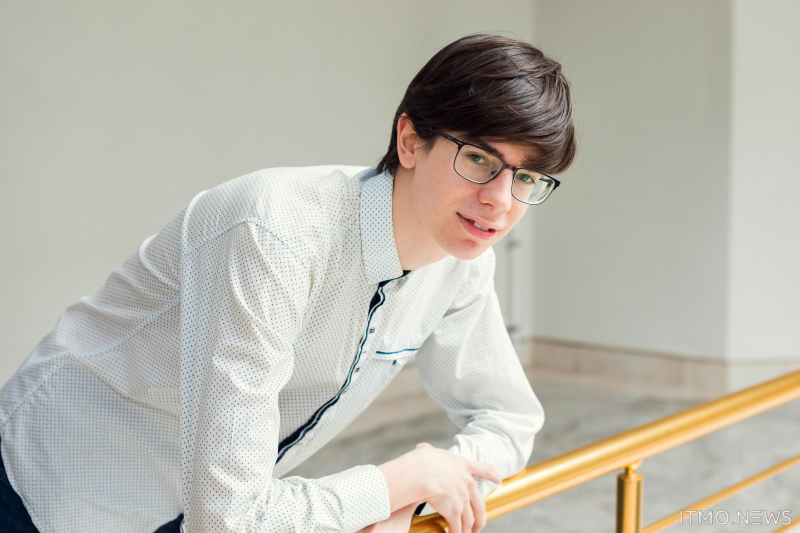
Zakhar Yakovlev. Photo by Dmitry Grigoryev / ITMO.NEWS
Which contest do you remember most?
I think you can never forget your first competition. It’s all the more meaningful because it’s the one where you have no expectations before going in. Perhaps, that was my secret to success: I was completely relaxed and free of any responsibilities. I remember this one time when I went to an open competition in computer science and, surprisingly, took home a medal. But when I came next time, the feeling was different – I was already aiming high and would have been disappointed if I didn’t succeed.
What exactly do you like about contests? Why are you so eager to compete?
I’ve always had a thing for contests and challenges. I find joy in solving various tasks. While school problems are, as a rule, not a big deal for well-studied students, contest tasks are not for everyone. So, what I enjoy most about contests is that I have to make a great effort to overcome difficulties.
You’ve been on I Am a Professional since season two and, in that time, you’ve earned ten awards, including two silver and three bronze medals. Yet the fifth season of the contest became the most successful for you, bringing you as many as seven prizes in various categories. What’s your secret to winning?
As I did well in the Physics category in the fourth season, this year I didn’t need to qualify for competitions in a wide range of related fields, such as Advanced Medical Technologies. The same happened with Mathematics, which got me into Mathematical Modeling, Artificial Intelligence, and some other fields. This made it so much easier for me than if I had to qualify for new categories on my own. Moreover, I already did five to six categories in my fourth year and this time, I went for the categories that had something to do with physics and mathematics. I feel like I was somewhat more successful this year because most of the contestants who could beat me have already finished their Bachelor’s and went on to compete with Master’s students.
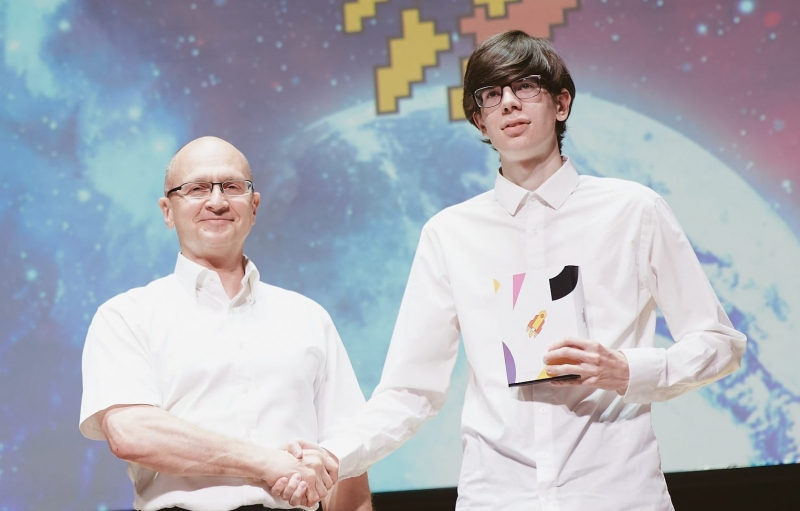
Zakhar Yakovlev at the awards ceremony in Moscow. Credit: vk.com/olimpiprofi
You’ve become best in four categories, which were quite diverse. How did you prepare for the contest?
Physics includes a whole lot of different branches, so I think that the specialized categories that competitions like I Am a Professional offer just encompass certain fields of physics. For instance, the category Laser, Plasma and Radiation Technologies is all about wave and geometrical optics, while Physics and Technology of Unique Mega-Science Class Scientific Equipment looks into relativistic mechanics. Typically, I study demos just a few days before a competition to find out what’s new this year and which terms I may encounter in certain tasks – and this is usually quite enough. It also helps if you have a good handle on physical processes, yet if I don’t know something, I always try to figure out what I’m asked to do and guess a solution. In my view, there’s no point in preparing for contests: you are either well-versed in the field and can run for the competition or not.
What did you learn from contests?
It’s not the quality of tasks but rather their quantity that makes competitions hard. Sometimes, even five hours are not enough to solve all the tasks. Because of that, I learned to act fast. This way, I can do more, though there’s still a chance that I'll miss out on something. Thanks to student contests in computer science, I can now write my own programs and perform numerical calculations, which is extremely helpful in my university studies.
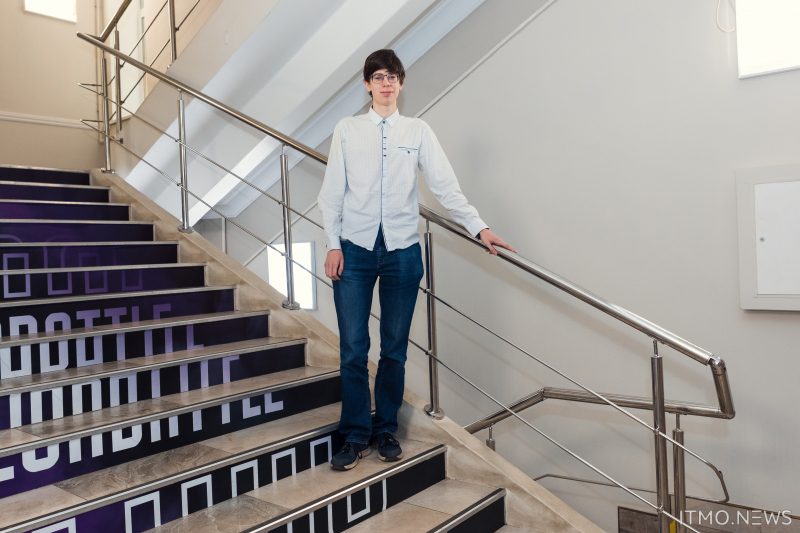
Zakhar Yakovlev. Photo by Dmitry Grigoryev / ITMO.NEWS
What do you do at ITMO?
I’m a theoretical physicist. I specialize in forming and solving equations in quantum physics and conducting related calculations. My thesis is devoted to the study of the interlayer exciton polaron in atomically thin semiconductors. These are 2D materials just one or more molecules thick with numerous properties, including the ability to bend easily, which is not the case for 3D materials. In my work, I investigated how their elastic properties can manifest themselves and affect the electronic properties of semiconductors.
What are you going to do after you finish your Bachelor’s?
This whole time, I was also a lab assistant at the Ioffe Institute, where I studied quantum phenomena and 2D materials. I’ll stay at the institute afterwards and will apply for a Master’s program at ITMO. Since I already did solid-state physics, I’ll probably carry on with quantum physics and go for Advanced Quantum and Nanophotonic Systems as my Master’s specialization.
